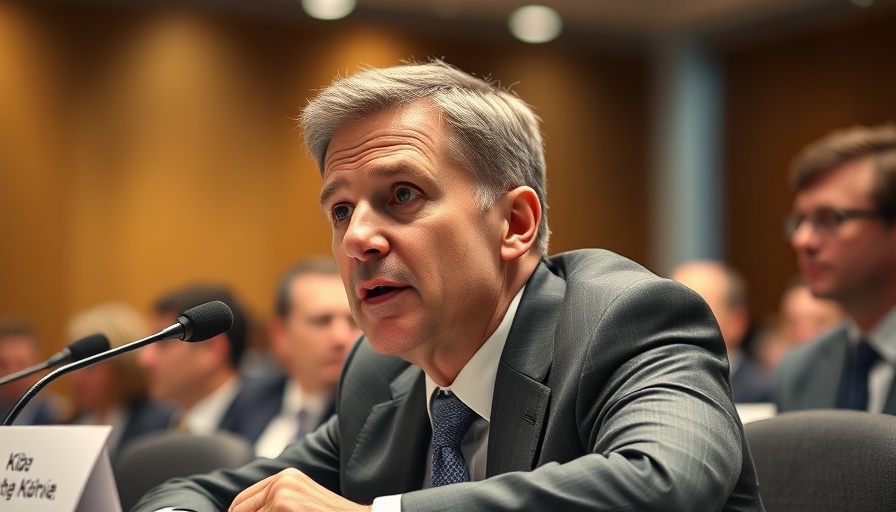
Echoes of a Dark Legacy: The Enduring Impact of Duterte’s Drug War
The recent arrest of former Philippine President Rodrigo Duterte marks a significant chapter in a long saga of his infamous 'war on drugs,' which has left a profound scar on Filipino society and civil institutions. Following accusations of crimes against humanity, stemming from widespread extrajudicial killings during his administration from 2016 to 2022, Duterte’s detainment signals hope for justice amidst years of turmoil. Advocacy groups and victims' families see this arrest as a beacon of potential accountability, a promise that the cycle of impunity may finally be disrupted.
Justice for Victims: A Promise or a Dream?
Duterte's regime was characterized by a brutal crackdown against suspected drug users and dealers, leading to an estimated death toll ranging from 6,000 to possibly 30,000 individuals, many of whom were innocent civilians. The chilling phrase, "All of you who are into drugs... I will really kill you," became a grim anthem of his policies in 2016. Now, as Duterte faces charges at the International Criminal Court (ICC), advocates are cautiously optimistic about the possibility of justice, calling it a much-needed step for the victims and their families who have already suffered immensely.
Calibrating Change: Will the Philippines Shift Its Course?
The Philippines' national identity and civil rights landscape have been irrevocably altered by the drug war. Recent developments have sparked discussions about how these events may redefine environmental justice and human rights in the country. As more Filipinos become aware of their rights and the international community remains engaged, there’s a chance for true change, pushing for sustainability and social responsibility amidst former atrocities.
Political Rivalries: The Feud That Led to Arrest
The arrest resulted not only from Duterte's actions but also from a tumultuous political climate. Recent tensions between Duterte's family and that of current President Ferdinand Marcos Jr. reveal how personal and political vendettas can catalyze monumental judicial actions. Their falling-out has laid the groundwork for Duterte’s legal reckoning, showcasing how political alliances can shift and impact fundamental democratic processes.
The Role of the ICC: A Global Lens on Local Issues
The ICC’s jurisdiction remained intact even after the Philippines' withdrawal, grounded in international agreements that hold leaders accountable for crimes committed during their tenure. With the ICC taking a strong stance, the events surrounding Duterte amplify the court's significance and ability to address local injustices on a global stage. This might encourage other nations to consider their accountability practices related to human rights abuses.
Ending the Cycle of Violence: Hope for a Safer Future
The societal implication of Duterte’s policies lies deeply rooted in the fabric of Filipino life. Prominent voices like Agnes Callamard of Amnesty International have endorsed the idea that this could represent a turning point for human rights in the Philippines. It encourages the youth and civil society to advocate for a safer, more equitable nation where violence is no longer the shortcut to governance.
What's Next? The Road Ahead for the Philippines
The arrest is not merely the conclusion of Duterte's journey but rather the beginning of a prolonged judicial process that could take years to yield definitive results. For hundreds of thousands affected by his policies, there is a pressing need for the reconstruction of trust in governance. Civil society must remain vigilant and proactive in demanding accountability and justice as they look towards a future characterized by healing, sustainability, and environmental conservation.
The future of the Philippines is now at a crossroads—one that calls for systemic change and a commitment to ensure that no leader can extricate themselves from the mantle of responsibility. Activists urge Filipino citizens to harness this momentum and push for reforms in various sectors, from governance and human rights to sustainable development and ecological restoration.
As advocates continue to brave the path to justice, the arrest serves as both a muted victory for victims and a clarion call to continue the fight against oppression and injustice in the region. The path forward is fraught with challenges, but collective advocacy is essential in shaping a free and just society.
Join the movement for justice and sustainable practices by supporting initiatives in your community that advocate for environmental conservation, ethical consumerism, and accountability. Together, we can foster significant change.
 Add Row
Add Row  Add
Add 



Write A Comment